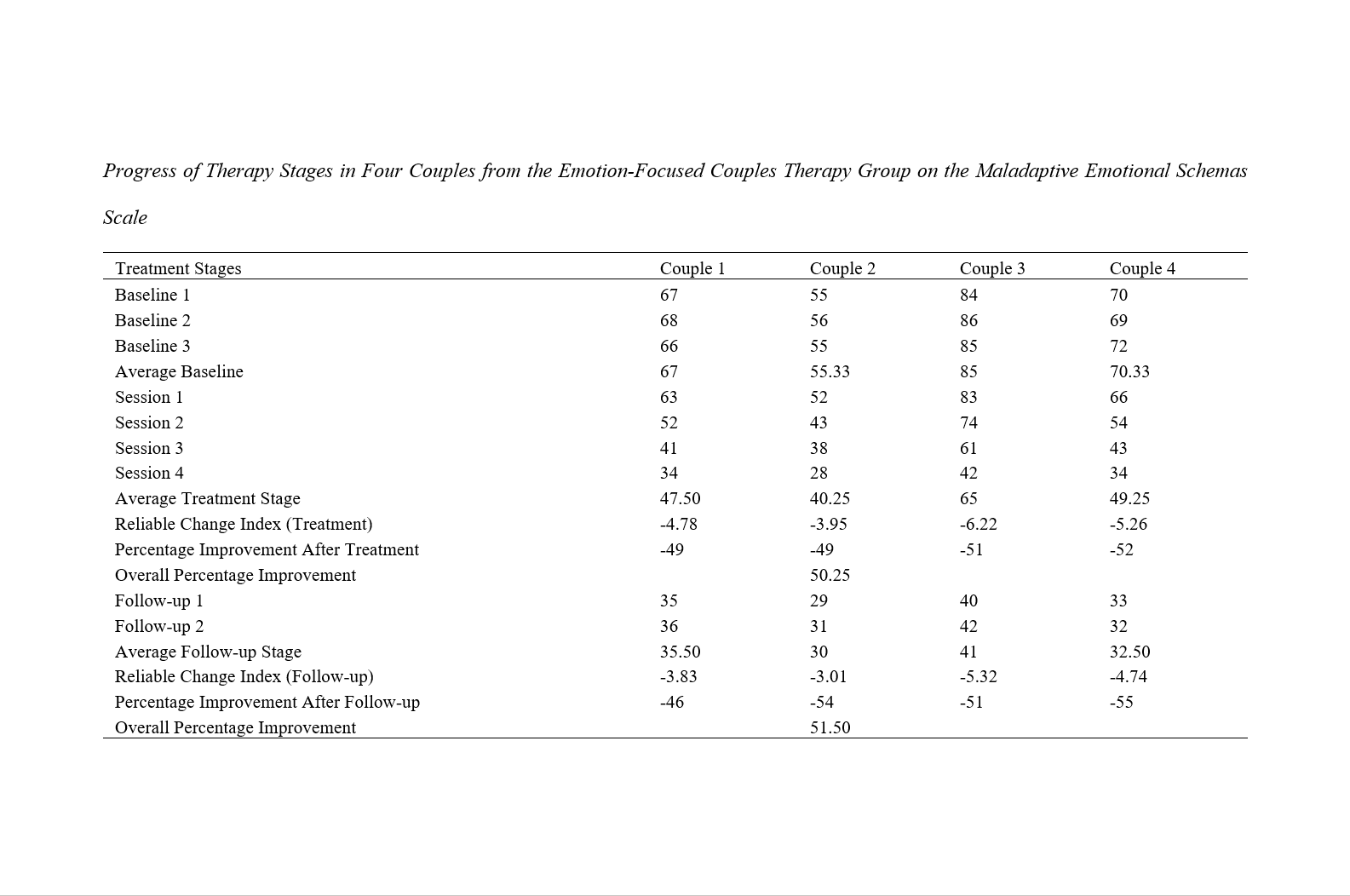The Effectiveness of Emotion-Focused Couples Therapy on Marital Commitment, Love Schemas, and Emotional Schemas in Couples with Extramarital Affairs
Keywords:
Emotion-Focused Couples Therapy, Marital Commitment, Love Schemas, Emotional Schemas, Extramarital AffairsAbstract
Objective: The aim of this study was to examine the effectiveness of Emotion-Focused Couples Therapy (EFCT) on marital commitment, love schemas, and emotional schemas in couples with extramarital affairs.
Methods: This research employed a semi-experimental single-case design with a multiple baseline method. The statistical population of this study included all couples with experience of extramarital affairs who referred to family courts and the prevention unit of the welfare organization in Dezful city in the year 2022. A total of 4 couples (8 individuals) were selected through purposeful sampling. The EFCT process was conducted in three baseline stages, across 8 sessions of 90 minutes each, with a two-month follow-up. Participants responded to the Marital Commitment Questionnaire by Adams and Jones (1997), the Love Schema Questionnaire by Yarahmadi-Vaseli et al. (2020), and the Leahy Emotional Schema Scale (LES) (2002). Data were analyzed using visual inspection, reliable change index, and percentage improvement formula.
Findings: The results indicated that EFCT led to an increase in marital commitment in couples with extramarital affairs (P<0.05), and the effects persisted until the follow-up stage. Additionally, the results showed that EFCT resulted in an increase in adaptive emotional schemas and a decrease in maladaptive emotional schemas in these couples (P<0.05). EFCT had a significant impact on secure love schema, unstable love schema, clingy love schema, avoidant love schema, and unserious love schema (P<0.05), with effects lasting until the follow-up stage. Furthermore, the results indicated that EFCT did not have a significant impact on reducing unserious love schema and uninterested love schema (P>0.05).
Conclusion: Therefore, EFCT can be utilized as a sustainable intervention to enhance marital commitment, love schemas, and emotional schemas in healthcare and therapeutic centers for couples with extramarital affairs.
Downloads

Downloads
Additional Files
Published
Issue
Section
License

This work is licensed under a Creative Commons Attribution-NonCommercial 4.0 International License.




















